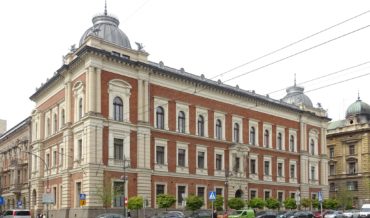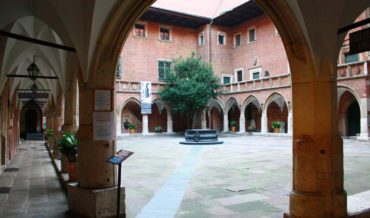Contents
- 1 Key Facts
- 2 Early Life and Education
- 3 Journalistic Career and Early Recognition
- 4 Literary Works and Prose
- 5 Theatrical Contributions
- 6 Film and Screenplay Work
- 7 Awards and International Recognition
- 8 Life in Exile and International Recognition
- 9 Recognition and Legacy in Krakow
- 10 Death and Continuing Legacy
- 11 References
Key Facts
- Born in 1930 in Borzęcin, died in 2013 in Nice, France
- Renowned Polish playwright, satirist, prose writer, and cartoonist
- Studied architecture at the Jagiellonian University and at the Academy of Fine Arts in Krakow
- Worked as journalist for major Polish publications including "Dziennik Polski" and "Echo Krakowa"
- Most famous for his theatrical works, especially "Tango" and "Striptease"
- Recipient of the Kościelski Award (1962) and Witkacy Prize (1990)
- Awarded Commander's Cross with Star of the Order of Polonia Restituta (1997)
- Became an Honorary Citizen of Krakow in recognition of his contributions to Polish culture
- His plays are performed worldwide in numerous languages
- Lived as an émigré in Italy, Paris, and Mexico during later years
Early Life and Education
Sławomir Mrożek was born in 1930 in Borzęcin, a small village that would later influence his satirical perspective on provincial life and social dynamics. His formative years in rural Poland provided him with keen observations of human nature and social hierarchies that would become central themes in his literary work.
Mrożek pursued his higher education in Krakow, one of Poland's most prestigious academic centers. He studied at the Faculty of Architecture at the Jagiellonian University, where he developed his appreciation for structure and form that would later manifest in his precisely crafted theatrical works. Simultaneously, he honed his artistic skills at the Academy of Fine Arts in Krakow, which provided him with the foundation for his career as a cartoonist and visual satirist.
Journalistic Career and Early Recognition
Professional Beginnings
Mrożek's professional career began in journalism, where he worked for prominent Polish newspapers including "Dziennik Polski" and Echo Krakowa. These positions allowed him to develop his distinctive satirical voice and observe the social and political changes occurring in post-war Poland.
His journalistic work extended beyond daily newspapers to include contributions to several influential cultural publications:
- "Życie Literackie" – where he published literary criticism and satirical pieces
- "Przekrój" – a weekly magazine known for its cultural content and social commentary
- "Tygodnik Powszechny" – a Catholic intellectual weekly that provided a platform for his more philosophical observations
Development of Satirical Voice
Through his journalistic work, Mrożek masterfully developed his signature style of absurdist humor combined with sharp social criticism. His cartoons and satirical writings from this period established him as one of Poland's most perceptive commentators on contemporary society, politics, and human folly, demonstrating an acute understanding of the paradoxes inherent in communist-era Poland. Understanding this Polish cultural context is essential to appreciating the depth of his satirical observations.
Literary Works and Prose
Short Stories and Novellas
Mrożek's prose works demonstrate his mastery of the short form and his ability to compress complex social observations into concise, powerful narratives that resonate with universal human experiences. His notable works include:
- "Opowiadanie z Trzmielowej Góry" (A Story from Trzmielowa Góra) – a work that explores rural Polish life with characteristic irony
- "Półpancerze praktyczne" (Practical Half-Armor) – a satirical examination of modern defenses against life's absurdities
- "Maleńkie lato" (Tiny Summer) – a delicate exploration of fleeting moments and human relationships
- "Słoń" (Elephant) – perhaps his most famous short story, a brilliant allegory about conformity and political pressure that poignantly captures the mechanisms of totalitarian control
- "Postępowiec" (Progressive) – a satirical look at ideological zealotry
- "Ucieczka na południe" (Escape to the South) – reflecting themes of exile and displacement
Thematic Elements
Mrożek's prose is characterized by absurdist elements, political allegory, and psychological insight that transcend their immediate Polish context to address universal human conditions. His stories often feature ordinary people caught in extraordinary circumstances that reveal the absurdity of social conventions and political systems, establishing him firmly within the European tradition of absurdist literature alongside Ionesco and Beckett. Within Polish literary tradition, his work stands alongside other great masters like Czesław Miłosz and Stanisław Lem in its international recognition and universal appeal.
Theatrical Contributions
Major Dramatic Works
Mrożek gained international fame primarily as a playwright, with his works being translated into dozens of languages and performed on stages worldwide. His theatrical output represents one of the most significant contributions to post-war European drama, making him an integral part of Krakow's vibrant theatrical scene.
Early Theatrical Success
- "Policja" or "Policjanci" (Police or Policemen) – an early work exploring themes of authority and control with prescient insights into power dynamics
- "Męczeństwo Piotra Oheya" (The Martyrdom of Peter Ohey) – a complex examination of sacrifice and ideology
- "Na pełnym morzu" (At Sea) – a minimalist drama exploring human relationships under pressure
International Recognition
- "Indyk" (Turkey) – a satirical piece about national identity and pride
- "Striptease" (1957) – one of his most performed works worldwide, a powerful allegory about the gradual loss of human dignity that remains chillingly relevant in contemporary discussions of authoritarianism
- "Czarowna noc" (Charming Night) – a romantic comedy with darker undertones
- "Tango" (1964) – arguably his masterpiece, exploring generational conflict and the collapse of traditional values. This groundbreaking work revolutionized Polish theater and established Mrożek as a major voice in international drama, with its sophisticated treatment of cultural revolution and moral decay
Later Theatrical Works
- "Moniza Clavier" – a work reflecting on artistic creation and personal responsibility
- "Rzeźnia" (Slaughterhouse) – a dark examination of violence and dehumanization
- "Emigranci" (Emigrants, 1974) – drawing from his own experience of exile, this two-character play masterfully dissects the psychological impact of displacement
- "Garbus" (Hunchback) – exploring themes of physical and social deformity
- "Vatzlav" – a later work showing his continued evolution as a playwright
- "Kontrakt" (Contract) – examining modern relationships and commitments
- "Portret" (Portrait) – a meditation on identity and representation
Theatrical Style and Impact
Mrożek's theatrical works are characterized by minimalist staging, sharp dialogue, and universal themes presented through specifically Polish contexts. His plays successfully combine intellectual depth with accessible humor, making complex philosophical and political ideas comprehensible to broad audiences. Critics have noted his unique ability to transform specifically Polish experiences into universally resonant theatrical statements about the human condition.
Film and Screenplay Work
Beyond theater and prose, Mrożek also contributed to cinema through his screenplay work:
- "Wyspa róż" (Island of Roses) – demonstrating his ability to adapt his satirical vision to film
- "Amor" – exploring romantic themes through his characteristic lens of gentle irony
His screenwriting work, while less extensive than his theatrical output, shows the same attention to character development and social observation that characterizes his other works.
Awards and International Recognition
Major Literary Honors
Mrożek's contributions to literature and theater were recognized through numerous prestigious awards:
- Kościelski Award (1962) – One of the most prestigious literary awards for Polish writers, recognizing his early promise and achievement
- Witkacy Prize (1990) – Awarded by the Critics' Section of the Polish ITI Centre for promoting Polish theatre internationally
- Commander's Cross with Star of the Order of Polonia Restituta (1997) – A high Polish state honor recognizing his cultural contributions
- Multiple international theater awards and honorary doctorates from universities across Europe
Critical Recognition
Leading scholars of Polish literature, including those from the Adam Mickiewicz Institute and major European universities, have consistently ranked Mrożek among the most important Polish writers of the 20th century. His works are studied in comparative literature programs worldwide as exemplars of Eastern European absurdist theater. His position among famous Polish figures is well established, placing him alongside other literary giants such as Adam Mickiewicz and Henryk Sienkiewicz in the pantheon of Polish literary achievement.
Life in Exile and International Recognition
Geographic Mobility
Mrożek's life was marked by geographic mobility that deeply influenced his work. He lived in Krakow during his formative years, later moving to Warsaw as his reputation grew. However, political circumstances and personal choices led him to spend significant portions of his later life abroad, including extended periods in Italy, Paris, and Mexico.
As Mrożek himself observed about his experience of displacement: "Exile is not just a change of geography—it is a transformation of perspective that makes you see your homeland with the eyes of both an insider and an outsider."
Themes of Displacement
This experience of displacement became a central theme in his later works, particularly in plays like "Emigranci" (Emigrants), where he explored the psychological and cultural challenges faced by those living away from their homeland with profound insight drawn from personal experience.
Recognition and Legacy in Krakow
Festival and Honors
In 1990, Krakow hosted the International Sławomir Mrożek Festival, a significant cultural event that brought together international theater companies, directors, and actors to celebrate his contributions to world drama. The festival featured performances of his works alongside discussions and workshops, with Mrożek himself participating alongside many other prominent artists. This event became a highlight of the cultural festivals in Krakow, celebrating the city's rich literary heritage.
Honorary Citizenship
In recognition of his outstanding contributions to Polish literature and culture, and his special connection to the city where he studied and began his career, Mrożek was awarded the title of Honorary Citizen of Krakow. This honor reflects not only his artistic achievements but also his role in promoting Polish culture internationally. His connection to the historic city center, including Krakow's Old Town, represents his deep cultural roots in this ancient Polish capital.
Continued Influence
His works continue to be regularly performed in theaters throughout Poland and around the world, testament to their enduring relevance and artistic merit. The themes he explored – political oppression, social conformity, generational conflict, and the human condition – remain as pertinent today as they were during his most productive years. Contemporary Polish playwrights consistently cite Mrożek as a formative influence on their understanding of theatrical possibility. Like his contemporary and fellow Polish cultural figure John Paul II, Mrożek's influence extended far beyond Poland's borders, making him a truly international figure.
Death and Continuing Legacy
Sławomir Mrożek died in 2013 in Nice, France, ending the life of one of Poland's most internationally recognized literary figures. His death marked the conclusion of a career that spanned more than five decades and produced works that continue to be studied, performed, and celebrated worldwide.
His legacy extends beyond his individual works to include his profound influence on subsequent generations of Polish writers and dramatists, his crucial contribution to the international recognition of Polish literature, and his role in developing a uniquely Polish form of absurdist theater that speaks to universal human experiences. Major cultural institutions, including the Polish National Library and Polish Cultural Institute, maintain extensive archives of his works and continue to promote scholarly research into his contributions to world literature. Cultural institutions like the National Museum continue to preserve and celebrate his contributions to Polish cultural heritage.
Contemporary theater directors and literary critics continue to find new relevance in Mrożek's work, particularly his prescient insights into the mechanisms of political control and social conformity that resonate powerfully in today's global political climate. His work maintains its place alongside other great Polish literary figures such as Cyprian Kamil Norwid in the canon of essential Polish literature.
References
- Sugiera, Małgorzata. Mrożek: Biografia. W.A.B., 2014.
- Culture.pl – Adam Mickiewicz Institute. "Sławomir Mrożek." https://culture.pl/en/artist/slawomir-mrozek
- Czerwiński, E.J. "The Absurd in Mrożek's Dramatic Works." Slavic and East European Journal, vol. 15, 1971.
- Kott, Jan. "Mrożek's Tango and the Death of Values." Theatre Quarterly, vol. 3, 1973.
- Polish National Library Archives. "Sławomir Mrożek Collection." https://www.bn.org.pl/
- Błoński, Jan. "Mrożek as Satirist." Polish Review, vol. 18, no. 2, 1973.


